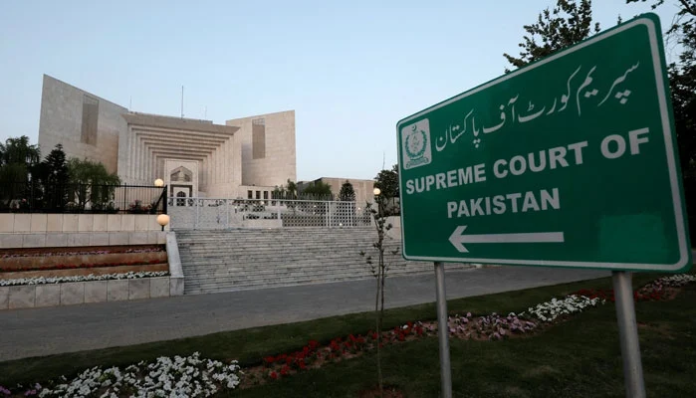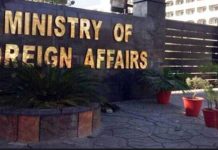ISLAMABAD, MAY 29 (DNA): The hearing on review pleas against the Supreme Court’s (SC) July 12, 2024, ruling that the Pakistan Tehreek-e-Insaf (PTI) was entitled to reserved seats for women and minorities in the national and provincial assemblies will begin again on Thursday (today) at the apex court.
The Election Commission of Pakistan (ECP), Pakistan Muslim League-Nawaz (PML-N), and Pakistan Peoples Party Parliamentarians (PPPP) had filed review petitions against the July 12, 2024 ruling on reserved seats. The case hearing was conducted by an 11-member constitutional bench of the Supreme Court, presided over by Justice Aminuddin Khan.
Justices Jamal Khan Mandokhail, Muhammad Ali Mazhar, Musarat Hilali, Naeem Akhtar Afghan, Hassan Azhar Rizvi, Muhammad Hashim Khan Kakar, Shahid Bilal Hassan, Aamir Farooq, and Ali Baqar Najafi were among the other members of the bench.
Sunni Ittehad Council (SIC) attorney Faisal Siddiqui will continue to argue the maintainability of the instant review pleas.
Meanwhile, the PML-N added more grounds to its review plea on Wednesday by submitting an application in detail and citing the primary ruling in the reserved seats case announced on July 12 last year.
The ruling political party lawyer Barrister Haris Azmat argued that the July 12 ruling on reserved seats established judicial principles, by using the authority granted by Article 187 of the Constitution, in a contradictory manner.
“These powers under Article 187 are meant to be used only in pending cases to ensure complete justice,” the PML-N submitted adding that the SIC had filed an appeal with 80 members to claim reserved seats. However, as a result of the court’s decision, the SIC is now left with zero members.
The PML-N further submitted that the powers under Article 187 are not unlimited adding that the issues on which the court gave its decision were never part of the official court record.
“Moreover, none of the 80 members of the SIC appeared before the court,” the application contended, adding that the SIC and PTI cannot be considered the same political party.
The PML-N submitted that it is an admitted position that the list of 80 candidates shown in the list provided by the ECP all contested as independent candidates. None of the said candidates came to this court or the forums disputing this fact.
Furthermore, all 80 candidates being independent have joined SIC and have given an affidavit to this effect. Neither they were impleaded before this court by the appellants nor were heard, the PML-N submitted.
It prayed that in view of the same, the unilateral observations against the record in the detailed reasoning from Paragraph No 106 onwards are liable to be recalled.
It further contended that taking up the case of 41 candidates from the ECP List, it is submitted that they have not shown linkage with PTI in any of the columns in the ECP List.
“It is shocking and surprising that the said candidates have been given 15 days to join any party,” the PML-N submitted adding that on the contrary, the Constitution provides three days to do so, and that too from the date of their notification as a returned candidate.
It contended that in view of the same, there are two glaring errors apparent on the face of the record from the said findings alone: (i) the independent candidates cannot be given any choice that two months after the election and especially after they have joined a political party to join another party; (ii) when the Constitution provides only three days in terms of Article 51(6)(d) then the courts have no power to rewrite the Constitution.
The PML-N submitted that when the detailed reasoning itself has acknowledged in part (Paragraph No66, 79, 80) that SIC is not entitled to the reserved seats, then it could not have gone ahead and granted those seats to PTI, which was not before the court nor claimed the same before any forums below.
It prayed the court that the findings recorded are erroneous and are liable to be recalled. It further prayed to the court to allow this application to bring these additional grounds on the record in the interest of justice.

















